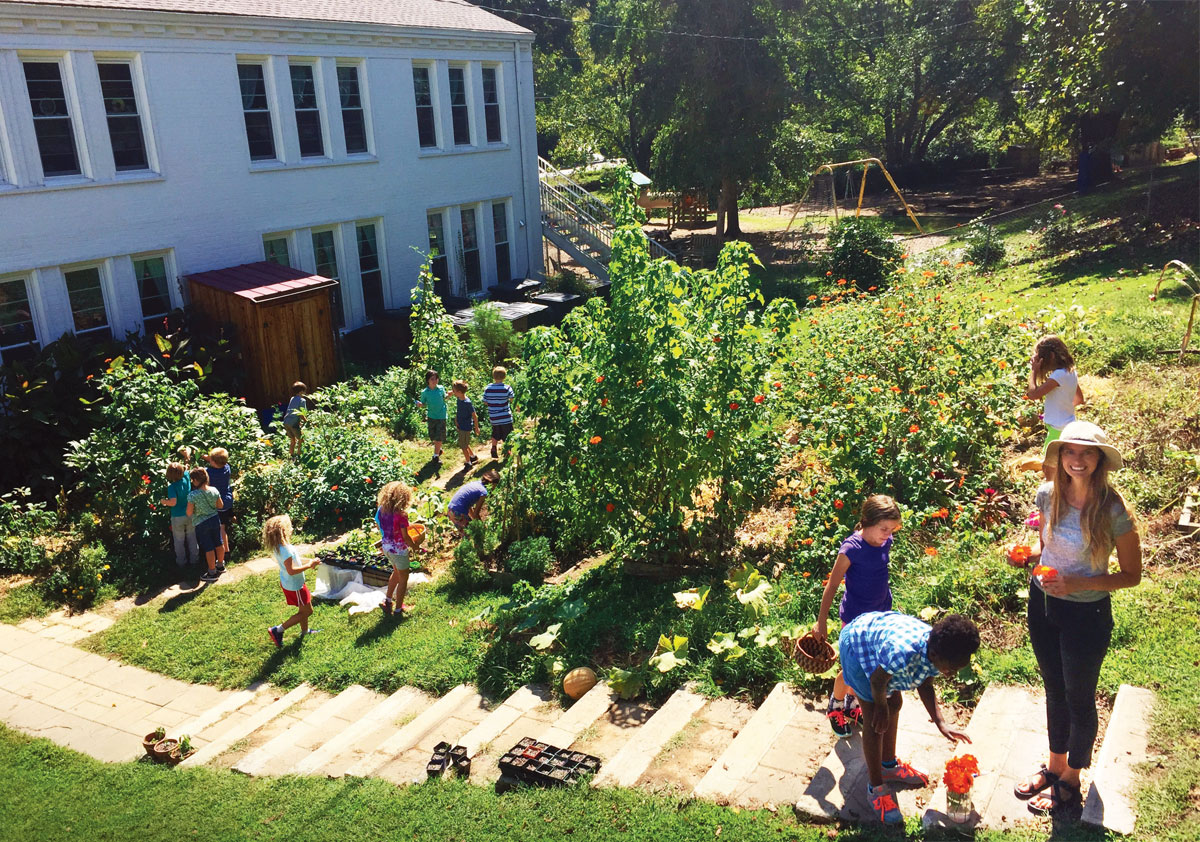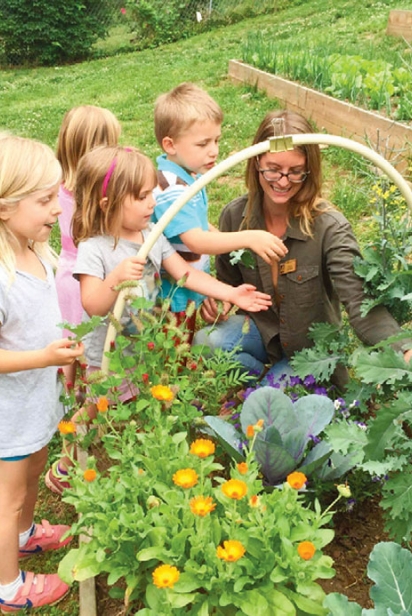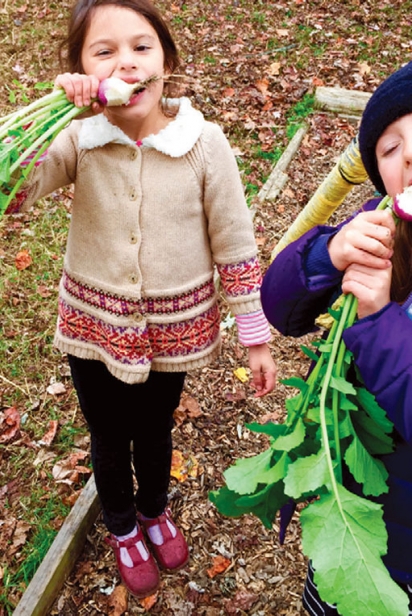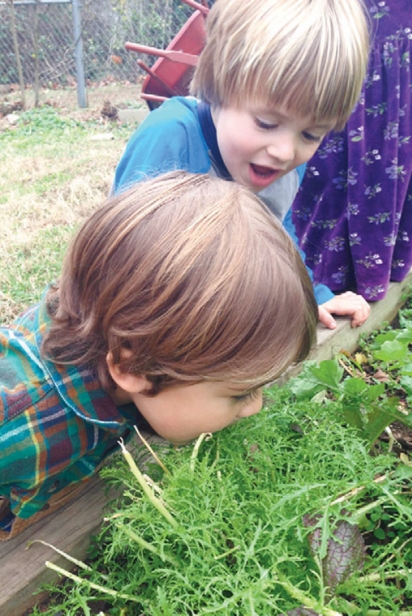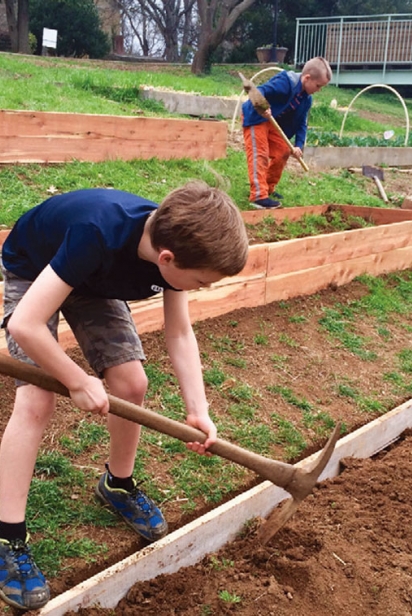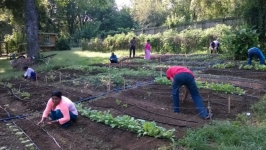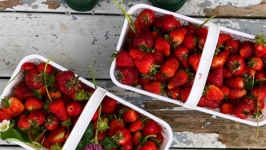Linden Waldorf - A Shining Garden on the Hill
If Nashville’s Linden Waldorf School had a belly button, it would be a green one. And an outie. It would be the terraced garden on the hill, the geographic and symbolic center of its quaint and cheerful campus. Like any respectable belly button, this garden marks a connectedness to something deeper. To something nourishing and life-giving. To something fundamentally good.
Each season, a fresh batch of third graders mindfully tends to this shining garden on a hill. Their mission is not simply to grow healthy things to eat like spinach and kale, turnips and beans—although they very much do—but to understand through their own hands, heads and hearts the cycles and rhythms of nature. Here upon this literal patch of Green Hills, the kids don’t just grow the garden, they grow with the garden —a Waldorf model of pedagogy that fits together like peas in a pod.
Eliza Hughes serves as Linden Waldorf ’s garden teacher. “Miss Eliza,” as her students call her, guides her pupils’ growing spirits through hands-on lessons in permaculture, composting and gratitude for the gifts of nature. For example, the first lesson the students receive upon returning to school in fall and finding the garden, as Eliza puts it, “bursting with tomatoes, cucumbers, squash, soy, potatoes, peppers, herbs and flowers,” is to practice the Native American tradition of “honorable harvest,” an ethical protocol for interacting with the living plants that involves not just a taking from but a giving back. “It slows us down,” says Eliza, “and allows us to move in the garden with a deep reverence.”
Composting is also deeply embedded into the school’s curriculum. As part of their daily tasks, students deliver all food waste on campus to the compost bins on the playground. Under Eliza’s watchful eye, third graders then use real tools to turn bins’ contents and observe firsthand nature’s healthy feedback loops in action. “The students love this,” Eliza says. “And they are always amazed at the beautiful finished product—one that starts as rotting lunch leftovers and ends up as soft-feeling and healthy-smelling soil.”
While the garden grounds much of the third graders’ curriculum, the fruits of that garden are incorporated into the learning for the other grades. For example, the garden’s cotton and flax are used for older students learning about fabrics. In winter months, younger ones use broom corn to make brooms. And, throughout the school, marigolds from the garden—strung with needle and thread—make vibrant garlands for all the classrooms.
But, of course, there is the enjoyment of eating! “It is amazing,” Eliza comments, “to see the kids so willing and eager to eat vegetables they have grown—not just the obvious, juicy tomatoes, but also fistfuls of raw kale, bunches of spicy mustard green, and pungent, raw garlic. The children have such a sense of belonging in the garden, they are connected to the produce and enjoy without hesitation.”
A visit to Nashville’s Linden Waldorf will prove that it is a place that practices what it preaches: a deep connection with nature that nurtures wonder and reverence for the world around us. With about 150 Waldorf schools operating in all of North America, Music City is fortunate to have this growing treasure in our own Green Hills. After all, give a child a salad and feed her for a day. But teach that child to garden, and feed her for a lifetime.


